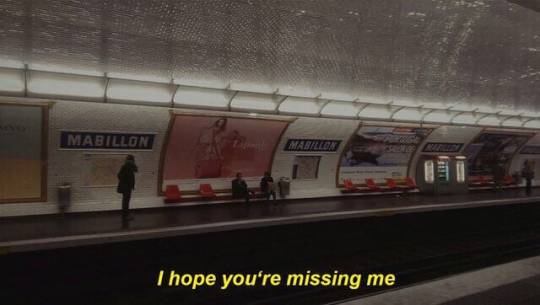Text
““You don’t ask people with knives in their stomachs what would make them happy; happiness is no longer the point. It’s all about survival; it’s all about whether you pull the knife out and bleed to death or keep it in.” - Nick Hornby, How to Be Good”
—
247 notes
·
View notes
Text
“Letting go. Everyone talks about it like it’s the easiest thing. Unfurl your fingers one by one until your hand is open. But my hand has been clenched into a fist for… years now; it’s frozen shut.”
— Gayle Forman // Where She Went
711 notes
·
View notes
Text
“The influx of competing messages that we receive whenever we go online not only overloads our working memory; it makes it much harder for our frontal lobes to concentrate our attention on any one thing. The process of memory consolidation can’t even get started. And, thanks once again to the plasticity of our neuronal pathways, the more we use the Web, the more we train our brain to be distracted - to process information very quickly and very efficiently but without sustained attention. That helps explain why many of us find it hard to concentrate even when we’re away from our computers. Our brains become adept at forgetting, inept at remembering. Our growing dependence on the Web’s information stores may in fact be the product of a self-perpetuating, self-amplifying loop. As our use of the Web makes it harder for us to lock information into our biological memory, we’re forced to rely more and more on the Net’s capacious and easily searchable artificial memory, even if it makes us shallower thinkers. The changes in our brains happen automatically, outside the narrow compass of our consciousness, but that doesn’t absolve us from responsibility for the choices we make. One thing that sets us apart from other animals is the command we have been granted over our attention. “‘Learning how to think’ really means learning how to exercise some control over how and what you think,” said the novelist David Foster Wallace in a commencement address at Kenyon College in 2005. “It means being conscious and aware enough to choose what you pay attention to and to choose how you construct meaning from experience.” To give up control is to be left with “the constant gnawing sense of having had and lost some infinite thing.” A mentally troubled man - he would hang himself two and a half years after the speech - Wallace knew with special urgency the stakes in how we choose, or fail to choose, to focus our mind. We cede control over our attention at our own peril. Everything that neuroscientists have discovered about the cellular and molecular workings of the human brain underscores that point.”
— Nicholas Carr, The Shallows: How the internet is changing the way we think, read and remember
628 notes
·
View notes













